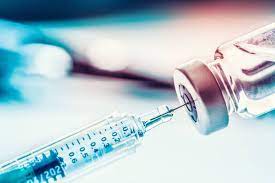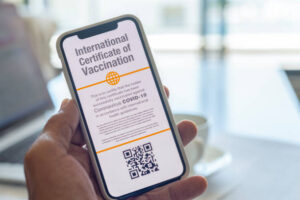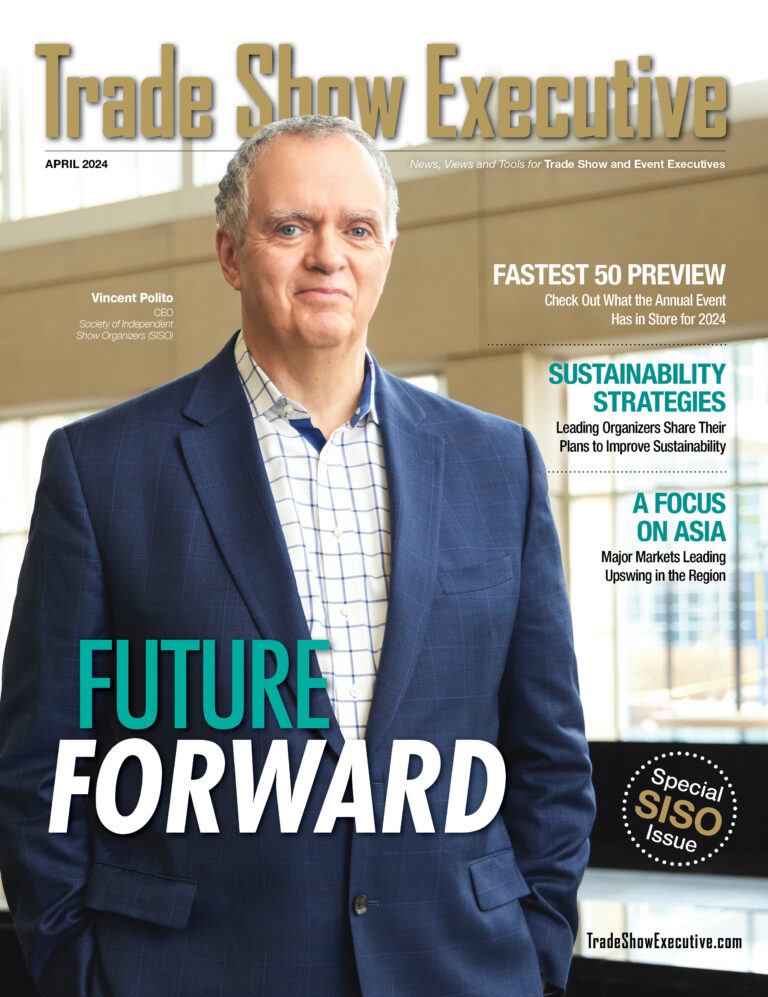 CHICAGO — The key to reopening the trade show industry was to be vaccinated against COVID-19. Early this year, we were rewarded with not one, but several viable options. Unprecedented times create unprecedented questions, including what constitutes an acceptable proof of vaccination, and how to standardize and agree on an acceptable proof of vaccination for admitting attendees and exhibitors from outside the United States.
CHICAGO — The key to reopening the trade show industry was to be vaccinated against COVID-19. Early this year, we were rewarded with not one, but several viable options. Unprecedented times create unprecedented questions, including what constitutes an acceptable proof of vaccination, and how to standardize and agree on an acceptable proof of vaccination for admitting attendees and exhibitors from outside the United States.
“As the COVID situation shifts, rules are going to change and these changes may not be loudly announced,” Dr. Emily Landon, an infectious disease specialist at University of Chicago Medicine, said. “It’s a very tenuous, difficult situation welcoming other citizens and presents an ever-changing landscape of rules and regulations. It’s harder than you think it will be.”
And if you want an unmasked event you’ll need to take precautions, and that means a lot of hoops for international visitors to jump through, she said.

“There are a lot of different rules as to who can come into this country and what they have to do,” she added. “Frankly, I’m not sure international shows are ready for primetime yet.”
“While there is still much to be learned about COVID, one thing remains clear, and that is a fully vaccinated population is our best hope for preventing the spread, saving lives and putting an end to this pandemic,” Jonathan Weiner, CEO of the healthcare event HLTH, said. HLTH recently announced that it is requiring all attendees to its in-person event in October (17-20, Boston) to be fully vaccinated. “We cannot and will not ignore the science: Vaccinated individuals are the most unlikely demographic to catch or transmit COVID.”
To accommodate international delegates, John S. Foster, veteran meetings industry attorney and speaker, author and teacher of seminars on contract negotiation, urged show managers to consult with the Department of Homeland Security, the State Department, CDC and local authorities for the latest guidelines and rules governing events, and specific bans or other special entry requirements. “This is the first thing you should do,” he advised, reminding show organizers to verify the kind of information that impacts arrivals and make that available on the organization’s website.
Show organizers have two major concerns, Foster said. “The first is that no one wants to be held liable for someone getting COVID at their event, and the second is the issue of violating privacy concerns.” Show organizers can demand mandatory vaccines — that much is clear — and they can do it legally, he says. But they also have to deal with other issues, including the legal obligation to protect the information gathered about vaccine status from attendees. “And if you ask for proof, what proof do you ask for?” he asked. “That’s in transition now.”
For HLTH, international attendees must provide proof of vaccination via the CLEAR Health Pass, a free mobile experience on the CLEAR app, through which they will be able to submit proof of vaccination, ensuring a safe and frictionless event, Weiner said.
But what about those who refuse to get a vaccination for whatever reason? “We recognize and appreciate that there are some members of our community that may choose not to get vaccinated, for reasons such as health issues or religious beliefs,” Weiner said, adding that any attendee who remains unvaccinated or simply is not ready to travel will have the option to participate in HLTH 2021 through their digital platform. “It is important to us to have a digital option for those who would still like to be a part of the HLTH experience this year.”
“By law, trade shows can ask attendees about symptoms, check body temperature onsite and require proof of vaccine, or proof of a negative test,” Foster said. However, he cautions, if you do that there are people who just won’t come. “You can also require attendees and exhibitors to wear a mask onsite and you have a right to turn them away, but you’ll have to make reasonable accommodations and treat them separately.”

According to Foster, these include a waiver of liability/assumption of risk agreement on the organization’s website, where registrants can click the appropriate button to acknowledge they accept the risk that attending the show may cause injury or sickness, and that they agree to hold the organization harmless. And to be enforceable, he added, this must be clearly written, easy to understand, in an appropriate font size, (12- to 14-point, generally) and conspicuous, where everyone can see them.
“And remember, these rules are not going to be as enforced as time goes on. At some point, we’ll reach herd immunity, or 80% vaccinated, and this will no longer be an issue.”
Related. Trade Shows Beginning to Require Full Vaccination
No Standardization
Adding to the existing confusion is the fact the U.S. does not have a single method of tracking the fully vaccinated, as Israel and other countries with nationalized medicine do, Landon said. As an example of a tracking system that works, she cites New York’s Excelsior Pass, the app that provides New Yorkers with digital proof of COVID-19 vaccination or negative test results. “The app loads info to provide a QR code to show proof of vaccination status.”
Location, Location, Location
Before booking any shows, Landon counseled show managers to consult with local public health authorities, emphasizing that while everything might look fine now in a particular location, the situation can change quickly, without warning. “If you get into September and (COVID) cases increase, you’re going to have a problem,” she said. “Higher vaccination rates put you in a lower-risk category.”
She added, “Every locality has a non-zero chance of having an outbreak.”
When it comes to large shows within the U.S., the decision whether to require fully vaccinated attendees and exhibitors is optional, but if it’s optional, are you going to admit attendees who have a negative test? “If it’s a long show, it doesn’t make sense, as their status can change during the actual show,” she explained. “Show organizers will have to think that through carefully.”
Beware the Hotspots
 “If you want a well-attended show, choose a highly vaxxed area,” Landon recommended, stressing that areas with low vaccination rates are more likely to have outbreaks.
“If you want a well-attended show, choose a highly vaxxed area,” Landon recommended, stressing that areas with low vaccination rates are more likely to have outbreaks.
“Take into account your Plan B in case there’s an increase in cases,” she advised. “Your attendees aren’t going to be real excited about traveling to COVID hotspots and remember, different states have different requirements.”
Most trade shows haven’t had to address these issues until now and they need to be prepared to protect their investment. “A trade show is an expensive endeavor,” Landon said. “And this won’t be your usual team. You’re probably going to need additional help and you should reach out to an expert (in healthcare or virology) in how to navigate your specific needs.”
And remember: By law, some places can’t require masks or vaccines; and this, too, is subject to change. Click here for current state mask mandates.











